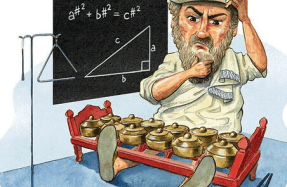
It probably didn’t occur to the composers at the time, but it’s quite convenient that William Byrd and Thomas Weelkes died in the same year, 1623. Their joint 400th anniversary gives us the chance to marvel at the breadth and depth of the English choral renaissance. Why? Because they were surely polar opposites – as personalities, as well as creative geniuses.
Byrd was over 80 when he died (his birth date isn’t confirmed, but was around 1540). He was




